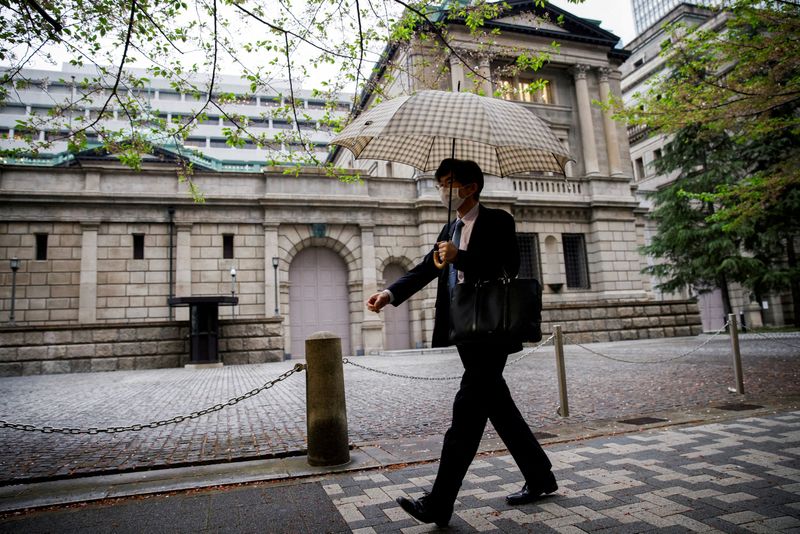[ad_1]

© Reuters. FILE PHOTO: An office employee walks in front of the bank of Japan building in Tokyo, Japan, April 7, 2023. REUTERS/Androniki Christodoulou/File Photo
By Leika Kihara
KAGOSHIMA, Japan (Reuters) -Bank of Japan board member Seiji Adachi said it was too early to phase out ultra-loose monetary policy due to uncertainty over the price outlook, brushing aside expectations of an early tweak to its controversial yield curve control policy.
But minutes of the bank’s April meeting showed a number of board members warning of the side-effects of the policy and the risk of being too late in raising interest rates, highlighting a rift within the group on how soon the BOJ should follow global counterparts in phasing out stimulus.
Adachi, who is considered one of a handful of advocates of aggressive easing on the BOJ board, said risks to the price outlook were skewed to the downside long-term due to a weak global economic outlook.
“We’re seeing some changes in the public’s deflationary mindset, or the perception that prices won’t rise,” Adachi told business leaders in Kagoshima, southern Japan, on Wednesday.
“In a sense, we’re moving closer to achieving our price target. But there’s high uncertainty over our baseline inflation outlook, so it’s premature to tweak monetary policy,” he said.
Japan’s core consumer inflation has stayed above the BOJ’s 2% target for more than a year and firms have offered pay hikes unseen in three decades this year, raising hopes the country is finally making a sustained exit from price stagnation.
That has kept alive market expectations the BOJ will soon tweak its yield curve control (YCC) policy, which has drawn criticism for distorting market pricing and crushing financial institutions’ profits.
Ueda has stressed the need to keep monetary policy ultra-loose until there is more evidence wages will keep rising next year, helping Japan sustainably hit his 2% inflation target.
At Ueda’s debut rate review in April, however, one member said the BOJ must ensure its policy “does not fall behind the curve,” as wages and inflation were already showing signs of accelerating, according to the minutes of the meeting.
Another member said the BOJ must avoid a situation where it had to make abrupt changes to interest rates, as that would cause huge disruptions to businesses accustomed to extremely low interest rates.
“The BOJ must humbly monitor price and wage developments, and respond not too quickly, but also not too slowly” the second member said.
[ad_2]
Source link
(This article is generated through the syndicated feed sources, Financetin doesn’t own any part of this article)
